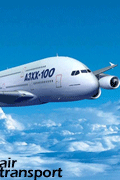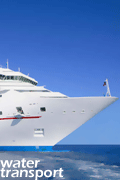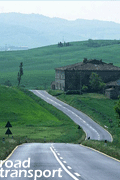Wednesday, July 22, 2009
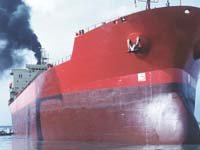
By difference, the Chamber of Shipping has welcomed the file, which forms part of the Low Carbon Transition Plan, through which the UK hopes to cut overall CO2 emissions by 34% by 2020 and at least 80% by 2050.
Transport in all modes currently occupy for 21% of all UK domestic carbon emissions, and the strategy sets out the policies and proposals for reducing all mode of transport sector emissions by 85m tones by 2022.
Labels: About Water Transport industry, Water Transportation
posted by transport blogs
@ 8:34 AM
permanent link | Post a Comment
| 0
comments
![]()
Tuesday, April 14, 2009
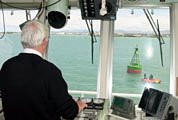
Water transport jobs range from shore-based roles, such as check-in agent and radio operator, to jobs on the water, such as harbour pilot and ship's master.
Volume of exports and imports affects water transport opportunities
The volume of New Zealand's exports and imports influences opportunities in the water transport industry.
Because of New Zealand's export-driven economy and geographic isolation from major markets, almost all of our imports and exports are moved by ships (99.5% and 99.4% by weight, respectively).
Exports likely to grow
Exports are expected to continue growing due to:
- New Zealand recently signing a free trade agreement with China, which has reduced the tariffs New Zealand businesses pay to export goods to China
- The 2008 recession and the New Zealand dollar losing value compared with some other currencies, resulting in overseas customers buying more New Zealand goods.
The Government has singled out shipping as its favoured method of moving freight because it is more energy and cost-efficient than road, air or rail transport.
In the Ministry of Transport's Sea Change policy document, the Government states that it will double the amount of domestic freight moved by ship, from 15% in 2007 to 30% in 2040.
This will increase demand for people in roles such as ship's masters, harbour pilots and stevedores.
Exemption from Kyoto Protocol likely to result in increased shipping
Emissions from ships are not regulated under the Kyoto Protocol. This means that, unlike road transport businesses, companies that shift goods by ship will not have to pay for the amount of CO2 they emit. This is likely to mean that even more goods will be transported by ship than before, creating demand for more water transport workers.
Possible changes to water transport training and qualifications
The Sea Change document notes that there are some inconsistencies with training in the water transport industry, and aims to put them right. Maritime New Zealand is reviewing its qualifications currently, and the Tertiary Education Commission is reviewing its policy of not making training grants available for the at-sea component of training programmes.
Source: http://www.careers.govt.nz/
Labels: About Water Transport industry
posted by transport blogs
@ 10:22 PM
permanent link | Post a Comment
| 0
comments
![]()




